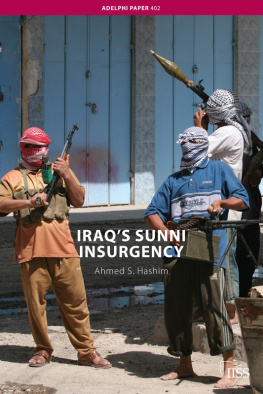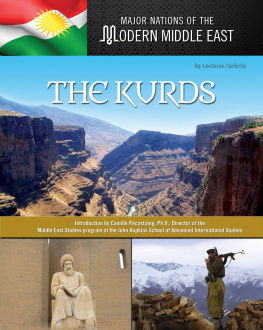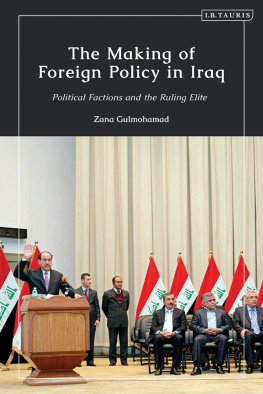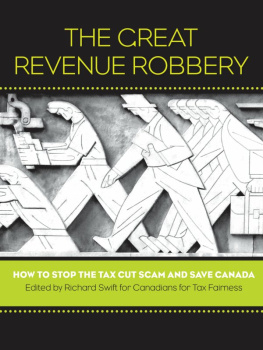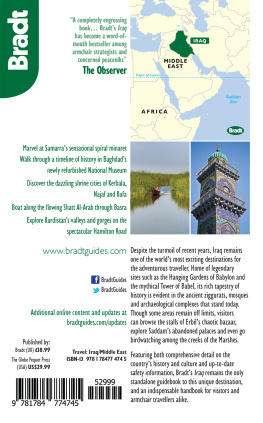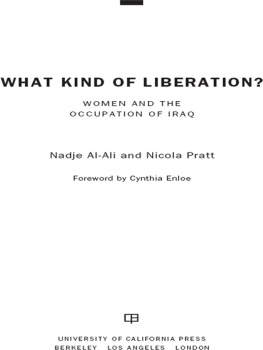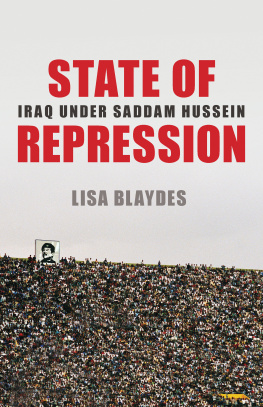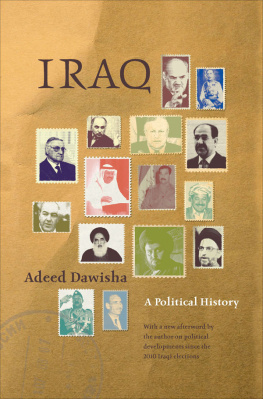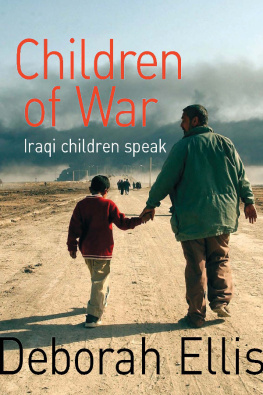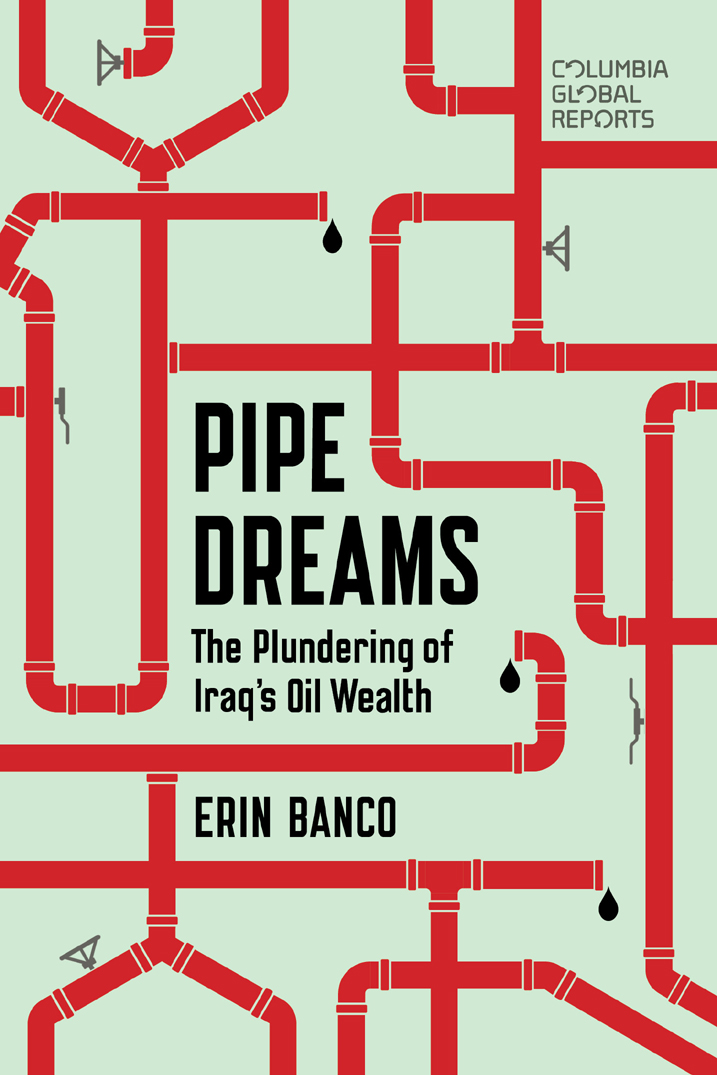Praise for Pipe Dreams
With her trademark meticulous reporting, Erin Banco brings us the woefully untold story of theft in Iraq: the robbing of the Iraqi peoples natural resource rights. She takes us behind the scenes of broken promises and charts an ongoing network of corruption and deceit that has continued to plunder not only Iraqs oil wealth, but the lives of its would-be beneficiaries. The result is a journalistic tour de force that cant be ignored.
Lauren Bohn,
Co-founder of Foreign Policy Interrupted and Middle East correspondent for The GroundTruth Project
Erin Banco expertly tells the complicated story of corruption that lies at the heart of the endless problems gripping Kurdistan and greater Iraq. Her investigative work on the countrys troubled oil industry is deeply researched and engagingly toldand it shows how mismanagement and greed have turned a resource that should be a blessing into a curse. The book offers a unique and timely window onto the countrys tumultuous past, as well as a lens for understanding the instability and violence that continue to plague it today.
Mike Giglio,
Buzzfeed



Pipe Dreams
The Plundering of Iraqs Oil Wealth
Copyright 2018 by Erin Banco
All rights reserved
Published by Columbia Global Reports
91 Claremont Avenue, Suite 515
New York, NY 10027
globalreports.columbia.edu
facebook.com/columbiaglobalreports
Library of Congress Control Number: 2016962880
ISBN: 978-0997722956
Book design by Strick&Williams
Map design by Jeffrey L. Ward
Author photograph by Miranda Sita
For Mom and Dad
With love and gratitude
CONTENTS
Table of Contents
Guide
Fouad Husseins Lexus SUV roared down the dusty highway on the outskirts of Kirkuk. Hussein, so optimistic just a few years back, was taking me on a dispiriting tour as he unwound a dispiriting story. It was the winter of 2016, and Iraq was in its third year of war against ISIS. Just over fifty miles south, in the town of Tuz Khurmatu, Kurdish militias were facing off against Shiite fighters backed by the Iraqi central government, both vying for greater control over Kirkuk. The war, Hussein said, was not just about defeating a terrorist organization, but about political factions and armies fighting for control and influence.
As Hussein and I drove, we passed by refugee camps. The battle with ISIS had sucked the region dry of cash and contributed to one of the worst humanitarian disasters in recent history. As bad, some international oil companies had begun to wonder whether Iraqi Kurdistan was the investment opportunity it was advertised to be following the U.S. invasion. Fed up with disappointing exploration results coupled with years of instability and a frustrating oil ministry, some oil companies had pulled out of the region. Several oil companies were in debt and had not received payouts from the cash-strapped Kurdistan Regional Government as promised in their contracts. Civil servants, despite raucous demands, had not been paid by the government in months.
Hussein, a member of the provinces oil and gas committee, was elected to the council in 2005. Hussein has lived in Kirkuk most of his life, decades in which the city has been fought over constantly. He saw it subjected to the Anfal campaign of genocide under former President Saddam Hussein, who sought to contain Kurdish aspirations for self-determination. He saw his friends die fighting for Kurdish rights and freedom and witnessed Kurdish homes completely leveled by Saddams military. And then, upon the ousting of Saddam, he saw hundreds of thousands of people begin to hope.
Foreign energy companies slowly arrived in the late 1990s, and then en masse following the American invasion in 2003, with plans to develop Iraqi Kurdistan into one of the most productive oil and natural gas regions in the Middle East. Despite the Kurds lingering tensions with the Baghdad government, a new, wildly prosperous era seemed just over the horizon. More than ten years later, Hussein said, those dreams were in tatters. Initial hopes that things would turn out for the better have mostly resulted in disappointment.
The fight between Kurdish and Iraqi militias dramatically escalated in late 2017, following a Kurdish referendum for independence. After the vote, Iraqi forces moved into Kirkuk, taking over key positions the Kurds had guarded since 2014, and control of the oilfields changed hands. The intense stand-off not only escalated tensions between Baghdad and Erbil, but also caused internal rifts between the Kurdish main political parties and their soldiers. The skirmishes seemed to wipe away any hope by the Kurds that they would soon solidify their control in Kirkuk and gain full autonomy from the central government.
The extreme swings of war and terrorism, going back to the early days of Saddam and even before, have left their mark on the Iraqi people. Millions of ordinary Iraqis have been displaced from their homes. Thousands of people, both Iraqi and American, have died. That story, chronically recycled by news outlets, certainly deserves to be told. But a more complicated storyand yet no less important oneis the promise made to the Iraqis that after the bombs and bullets stopped flying, after Saddam had been vanquished, their lives would be made immeasurably better. One of the reasons? Because Iraq and Iraqi Kurdistan sit on some of the worlds largest oil reserves. And in times of peace, billions of dollars could flow from those oil riches into the public coffers, replacing chaos and poverty with prosperity and plenty.
It hasnt worked out that way for Iraqi Kurdistan.
This book tells the story of the governments actions in Iraqi Kurdistan, how squabbling, coupled with the introduction of Western oil companies in the region, robbed the Iraqi people of their natural resource rights. The story is complex: Pipe Dreams is not all-encompassing. It tells just a sliver of the larger narrative of oil corruption in Iraqi Kurdistan. This book is not about the technicalities of Iraqi Kurdistans oil industry, or the nuances of production and sales, though it does touch on some of these subjects. It instead focuses on what happened behind the scenes between the Kurdish government and international oil companiesnegotiations, payouts, and kickbacks that exacerbated the plundering of the regions oil. It explores the effort by corporations to take advantage of a crumbling country engulfed in war, and a regional governments vision of gaining greater autonomy from Baghdad through oil sales. All of this unfolds in the context of a political climate rife with financial rivalries, constant war, and an economic crisis triggered in part by teetering oil prices and an influx of refugees.
It should be noted that this storythe resource curse in Iraqi Kurdistanis one shared with the people who live elsewhere in Iraq, under the leadership of the central government in Baghdad. Oil corruption exists there, too, but the story in Baghdad looks different, because the Iraqi government uses a completely different model to govern its oil sector. As you read this book, know that much of what unfolded in Iraqi Kurdistan is a product, at least in part, of the political and military position in Baghdad and its relationship to the West, most notably the U.S.


